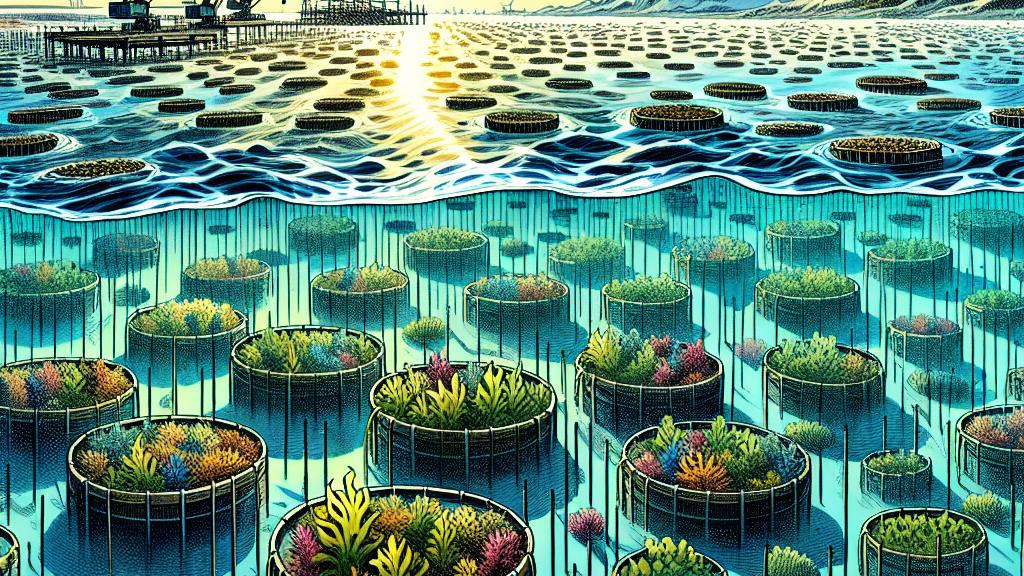How Seaweed Farms Help the Climate
Overview
- Seaweed farming is a vital tool in capturing carbon, significantly contributing to climate action.
- It generates a variety of eco-friendly products, ranging from nutritious food to sustainable biofuels.
- These farms enhance marine ecosystems while also bolstering local economies and providing livelihoods.

Carbon Sequestration Marvel
In the vibrant, clean waters off China's coast and in other coastal areas, something miraculous occurs within seaweed farms. These underwater landscapes are not merely picturesque; they serve as unsung heroes in the fight against climate change. Recent research has shown that cultivated seaweed beds can sequester carbon at rates comparable to some of the planet's healthiest natural ecosystems. Isn't that astounding? Imagine a simple yet powerful plant, like seaweed, absorbing enormous amounts of carbon dioxide from our atmosphere! By cultivating this remarkable organism, farmers can capture harmful greenhouse gases, thereby creating a positive impact on our planet. Each seaweed farm essentially becomes a mini carbon reservoir, soaking up excess CO2 and playing an essential role in fighting climate change.
Sustainable Seafood Delight
Picture this: you walk into your favorite sushi bar, and the delightful seaweed adorning your plate isn't just delicious, it's also a champion of environmental sustainability. Seaweed farming provides far more than just carbon capture; it's a treasure trove of nutritious food possibilities. Popular varieties like dulse and bull kelp are not only rich in vitamins but can be transformed into delectable salads, savory sauces, and scrumptious seasonings. This ingenious form of aquaculture utilizes vertical farming techniques, meaning farmers can grow abundant quantities of seaweed in compact spaces, all while minimizing harm to the surrounding delicate ecosystems. Moreover, supporting local seaweed farmers with consistent income also helps revive coastal economies. This truly is a fantastic win-win situation, ensuring delicious food while delivering environmental benefits!
Boosting Marine Ecosystems
Seaweed farms also wield profound positive effects on our precious marine ecosystems. These underwater gardens serve as natural water filters, improving water quality by absorbing harmful nutrients and excess carbon dioxide. In an era where our oceans face dire pollution challenges, seaweed farming becomes essential for restoring ecological balance. Furthermore, these farms provide critical habitats for countless marine creatures—from tiny shrimp to larger fish—offering them safe havens and food sources much like underwater forests do. When you grasp that growing seaweed is a carbon-negative practice and enhances marine biodiversity, it's crystal clear why marine conservationists champion this green initiative. By scaling up sustainable seaweed farming practices, we unleash a wave of benefits, fortifying our climate action efforts and revitalizing our oceans' health. It’s an inspiring symphony where agriculture dances beautifully with nature!

Loading...